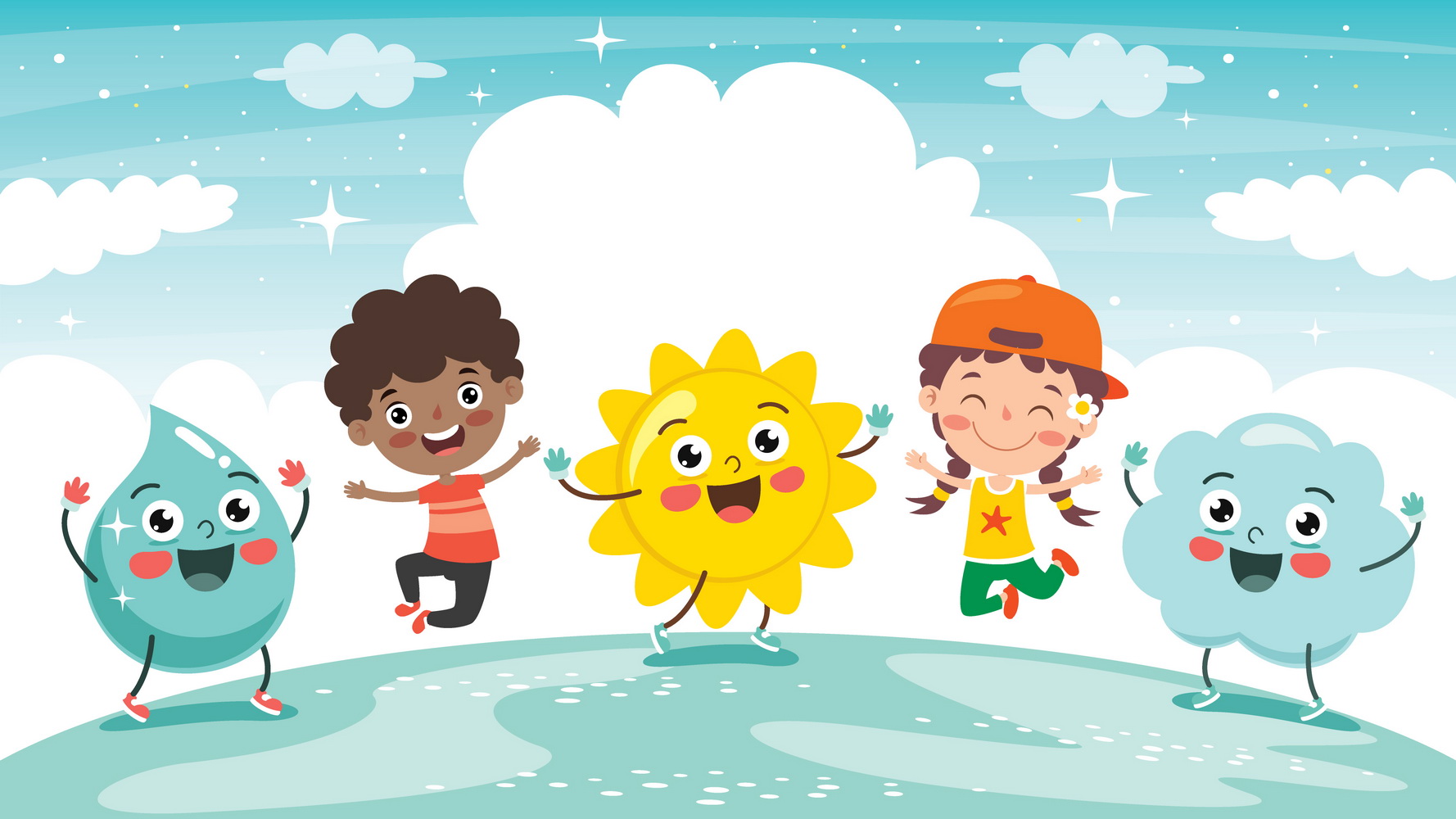K.CC.B.5 Counting and Cardinality worksheets With Answers for Kindergarten
5 filtered results
-
From - To
Unlock your child’s potential with our K.CC.B.5 Counting and Cardinality worksheets designed specifically for kindergarten learners! These engaging printable resources help young students develop essential counting skills up to 20 by encouraging them to count objects and trace numbers. Each worksheet is tailored to reinforce the concept of cardinality, helping kids learn to understand the quantity represented by numbers. With clear answer keys included, parents and educators can easily evaluate progress and ensure mastery. Perfect for classroom use or at-home practice, our worksheets create a fun and effective learning experience. Download now and watch your child's confidence soar!
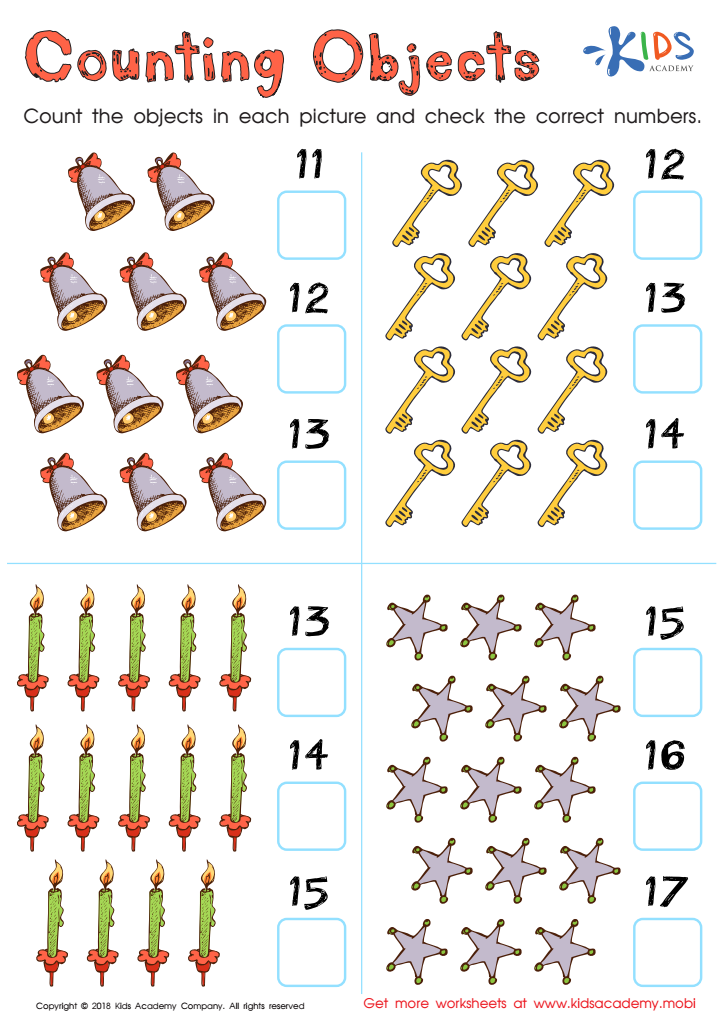

Counting Numbers Worksheet For Kindergarten
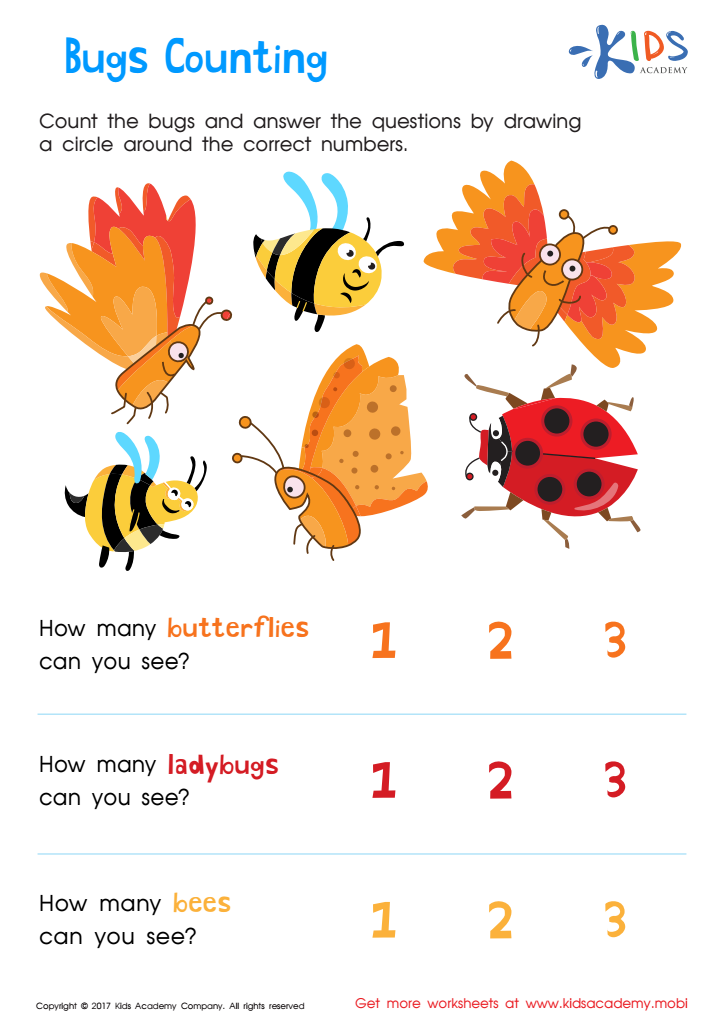

Bugs Counting Worksheet
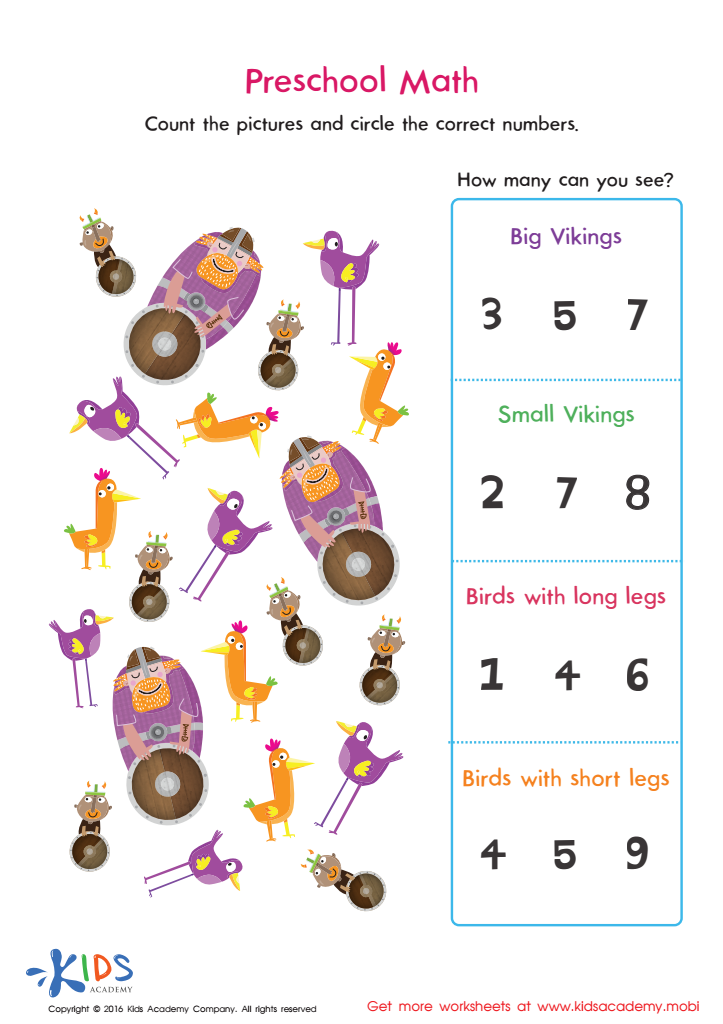

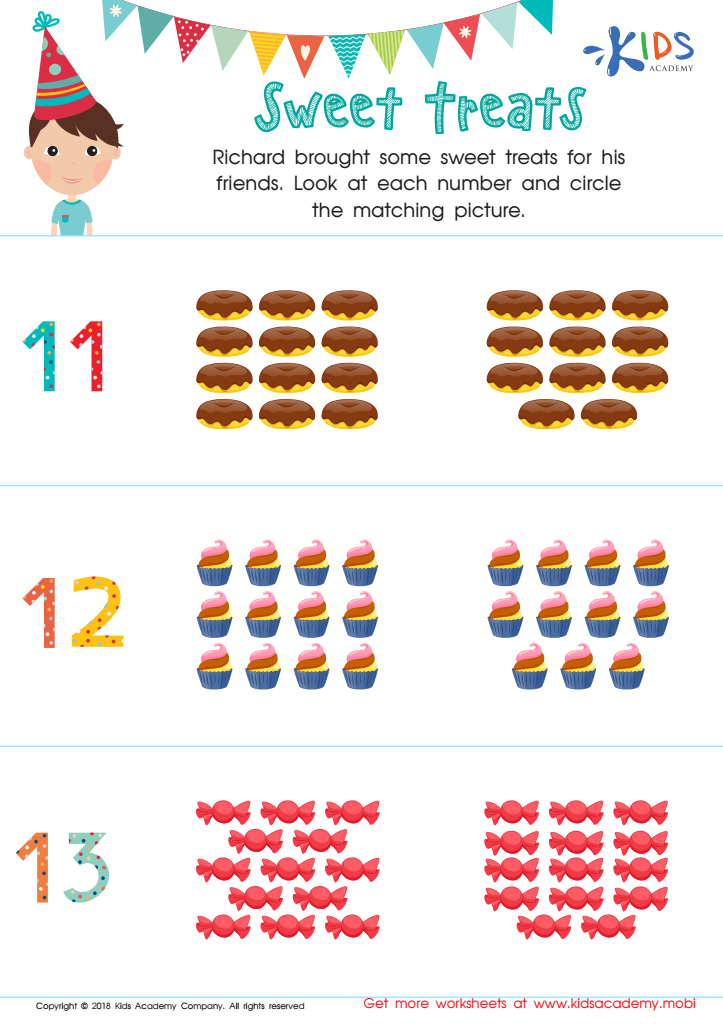

Kindergarten Math Worksheet Matching Numbers
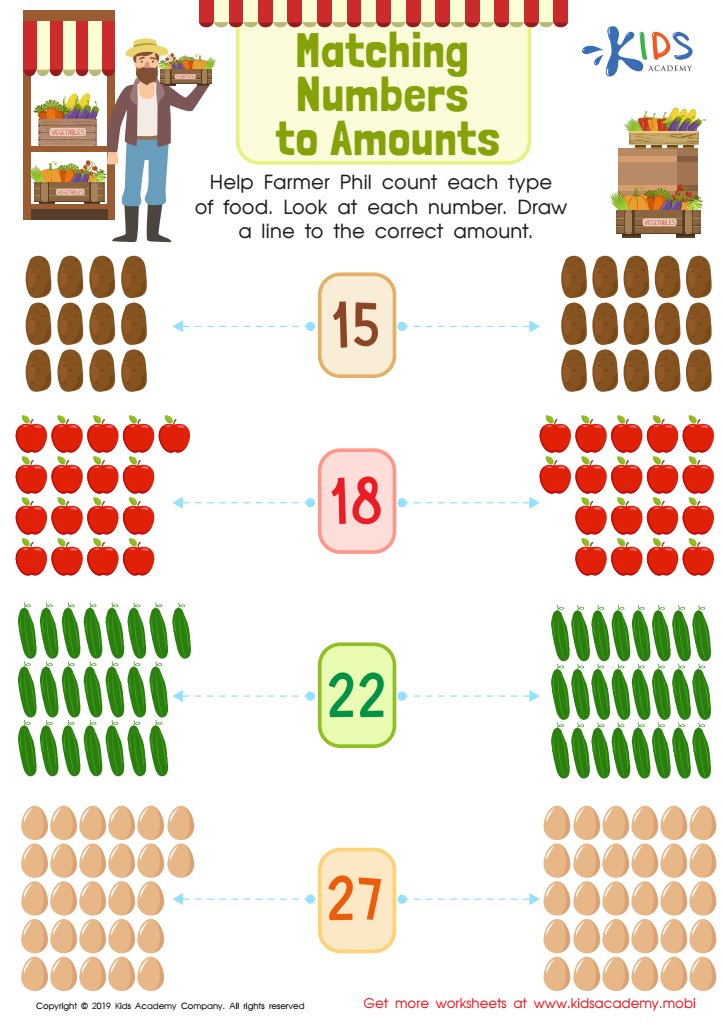

Matching Numbers to Amounts Worksheet
K.CC.B.5 is a crucial standard within the Counting and Cardinality domain of early math education for Kindergarteners. This standard emphasizes the importance of understanding the relationship between numbers and quantities, specifically teaching children how to count objects and compare quantities effectively. Parents and teachers should care about this standard because it lays the groundwork for essential mathematical skills that are vital for future academic success.
First, mastering K.CC.B.5 helps children develop number sense, enabling them to recognize numerical values and understand how they relate to tangible objects. This helps them make connections between math and real-world scenarios, fostering critical thinking and problem-solving abilities.
Furthermore, this standard encourages children to become comfortable with counting, a foundational skill that is necessary for more complex mathematical concepts they will encounter later in their education. Proficiency in counting and cardinality can also boost a child’s confidence in their abilities, positively impacting their overall attitude towards learning.
Overall, K.CC.B.5 is not just about learning to count; it's about fostering an early love for mathematics and building a strong foundation that supports lifelong learning. Parents and teachers play a key role in nurturing these early skills, setting the stage for future academic achievements.
 Assign to My Students
Assign to My Students



%20(1).jpg)



